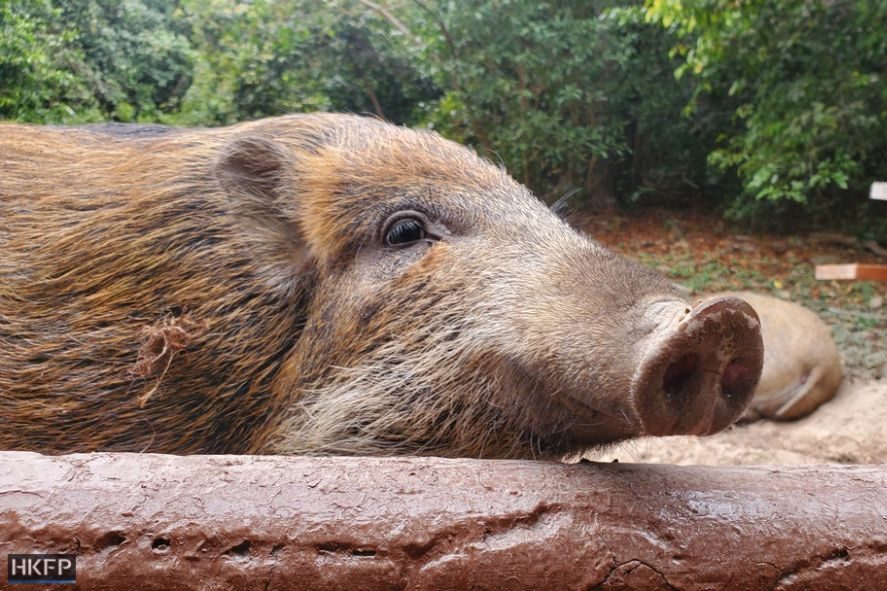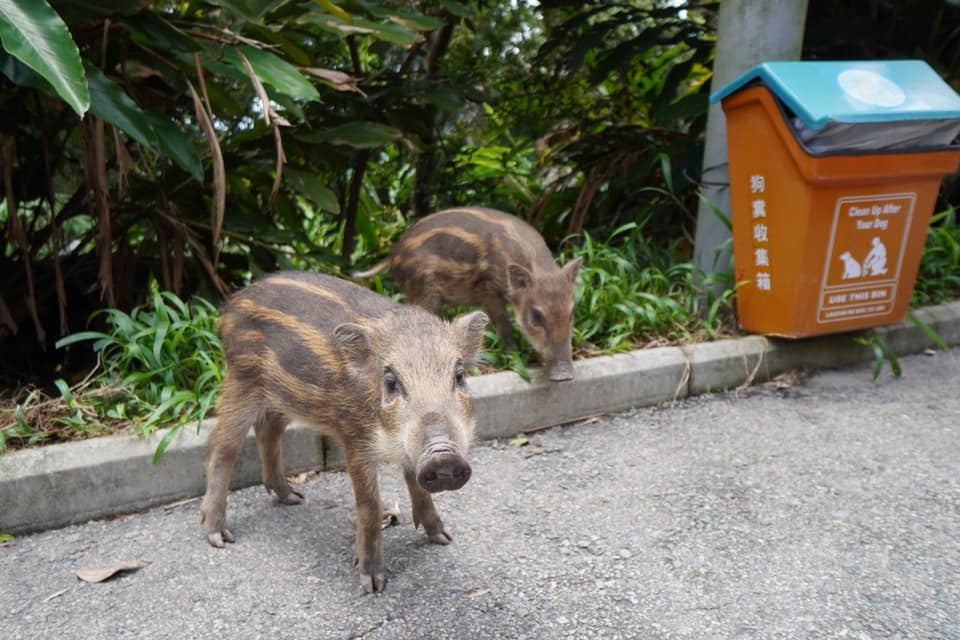A total of 916 boars were ” humanely dispatched” in Hong Kong over the past two years, with the government citing the need to reduce “nuisance” caused by the wild animals.
Responding to a lawmaker’s questions in the Legislative Council on Wednesday, Secretary for Environment and Ecology Tse Chin-wan said that the Agriculture, Fisheries and Conservation Department (AFCD) had deployed more CCTV cameras and installed new trapping devices in 2023 to more efficiently capture the wild boars.

The number of boars killed rose last year, with 41 wild pigs “humanely dispatched” on average per month, a 70 per cent increase from the monthly average of 24 in 2022.
Hong Kong’s population of wild boars was around 1,360 last year, a decline of 26 per cent from 2022, when there were 1,830.
Tse said in LegCo that authorities had installed 100 infrared cameras across the city to document the animals’ numbers and patterns of occurrence.
Since November 2021, the government has dropped its long-standing trap, neuter, return (TNR) policy, which stipulated that wild pigs in urban areas were captured and returned to the wild.

The policy change came after a police officer was bitten by a wild boar in Tin Hau. In 2021, authorities received 20 reports of people being injured by boars, a sharp increase from the number in 2020, when just three were injured.
Local media outlet reported in November 2021 that AFCD officers had used bait to lure boars to be killed, triggering criticism from the public and animal rights groups, who called it an “abhorrent” move.

Tse said, since the policy change, AFCD had regularly conducted operations to capture and “humanely dispatch” wild pigs in urban and rural areas where the animals have been sighted, human injuries have occurred, or the boars’ presence may pose potential risks to the public.
In 2013, former chief of food and health Ko Wing-man said in response to pro-democracy lawmaker Claudia Mo’s question that AFCD injected general anaesthetics to euthanise the animals. The injection was normally performed first in the thigh or buttock muscle and then in the heart, in the presence of at least one field officer and one veterinary officer.
Human feeding
According to the government, “human feeding activities are one of the root causes of wild pig nuisance.”

Earlier this year, authorities sought to change the city’s wild animal protection laws to raise the maximum penalty for illegally feeding wild animals to HK$100,000 and imprisonment for one year. The amendment will come into effect in August if it passes the opposition-free legislature.
Support HKFP | Policies & Ethics | Error/typo? | Contact Us | Newsletter | Transparency & Annual Report | Apps
Help safeguard press freedom & keep HKFP free for all readers by supporting our team

LATEST FROM HKFP
HKFP has an impartial stance, transparent funding, and balanced coverage guided by an Ethics Code and Corrections Policy.
Support press freedom & help us surpass 1,000 monthly Patrons: 100% independent, governed by an ethics code & not-for-profit.










